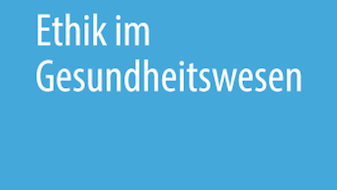Summary
The ethics of communal care requires a paradigm shift in access, since in contrast to ethics in medicine and nursing or in hospitals, nursing homes and outpatient care, it is not the institutions that form the essential background, but the everyday life and relationships of people. Questions of care or medical ethics do not come to the fore, the providers play a relative role, but, conversely, the focus is on everyday life and the need for care, in which medical and care-related aspects play a role. Such an everyday network character of the ethical perspective and the concrete ethical areas of tension must be taken into account. So what are the basics of communal ethics? How can ethical issues in the community be addressed? Outlines of an ethic emerge that lie in the paradigm of preventive and resource-oriented health promotion or public health access. Ethical questions and areas of tension exist in the open field of the “third social space,” not “per se.” They have to be viewed from different perspectives. A “community” is a fluid fabric of relationships in fuzzy living spaces that are “felt.” Correspondingly, actors who are involved in the development of communal care present themselves ethical questions as a complex "fabric" of areas of tension. To shed light on some features of this tension-fabric is the aim of this contribution, which ultimately enables the organized ethical discussion to be dealt with in a communal setting.
Schuchter P., Wegleitner K., Heller A. (2021) Ethik in der kommunalen Sorge: Lebenskunst und ethische Spannungsfelder. In: Riedel A., Lehmeyer S. (eds) Ethik im Gesundheitswesen. Springer Reference Pflege – Therapie – Gesundheit. Springer, Berlin, Heidelberg. https://doi.org/10.1007/978-3-662-58685-3_59-1
More: here (the article is in German)
